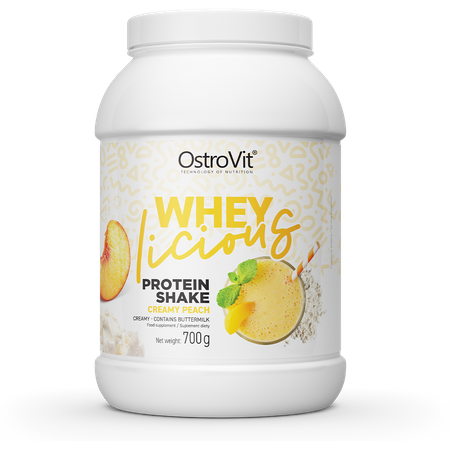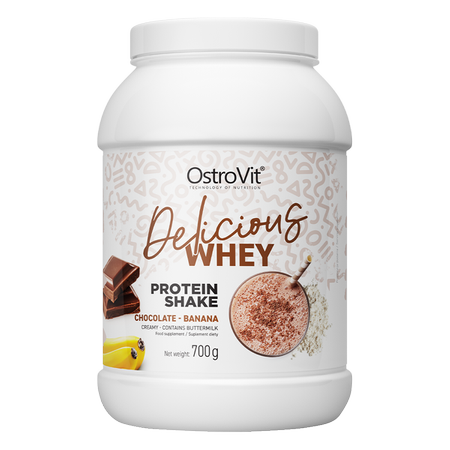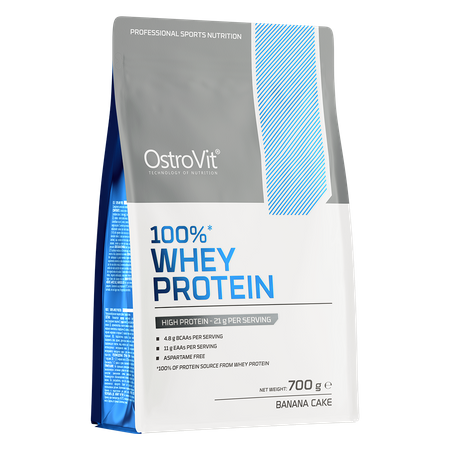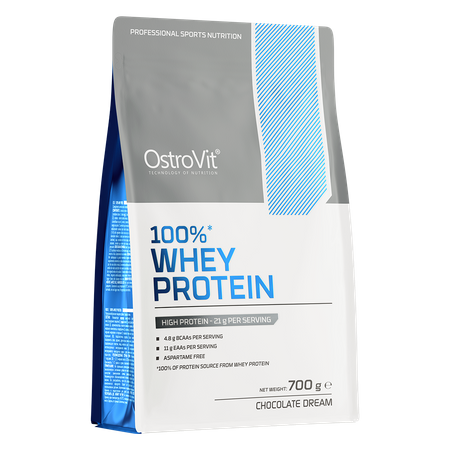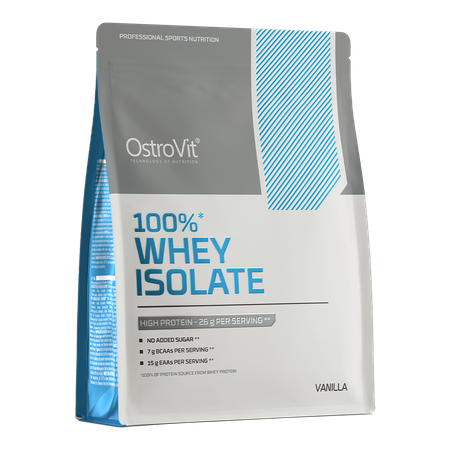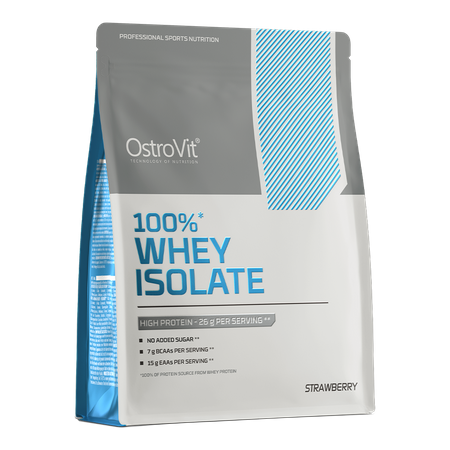Whey protein
Whey protein is a natural dietary supplement, very popular among physically active people, which can have a beneficial effect on the development of muscle mass and acceleration of regeneration after intense training. The macronutrient can also have a positive effect on slimming processes.
Whey protein is a wealth of exogenous amino acids, the proper supply of which is extremely important for the proper functioning of the body.
Whey protein - what is it?
Whey protein is actually a mixture of different proteins isolated from whey, a liquid considered to be a by-product of the cheese production process.
It is a functional protein of cow's milk, which accounts for about 20% of the content of all proteins in milk. Remaining percentage is casein.
Whey protein includes compounds such as alpha-lactalbumin (alpha-LA) or beta-lactoglobulins (beta-LG), which together make up about 75% of whey protein.
The discovery of valuable properties of the compound and drawing attention to its high content of bioactive proteins made whey protein a popular, widespread dietary supplement, which is a source of proteins and amino acids, i.a. in the diet of athletes.
Whey protein - action
Whey protein has been classified by AIS, Australian Institute of Sport, to category A and is considered a safe dietary supplement with proven effects.
The composition of whey protein is similar to that naturally occurring in muscles, which is why the supplement may have a beneficial effect on the process of protein synthesis.
Whey protein stands out from other protein supplements with a high content of leucine, which is extremely important in the context of building muscle mass. The compound may also contain other exogenous amino acids, including branched chain amino acids (in addition to leucine - valine and isoleucine), which are necessary for the proper course of muscle regeneration and their development. Thus, whey protein can be considered as a high-quality protein.
Supplementation with whey protein can accelerate muscle regeneration. Because it is a rapidly digestible macronutrient, it can positively affect the rate of repair of microdamages and injuries.
Whey protein can also help inhibit catabolic processes and thus can protect muscles against their breakdown and atrophy of muscle tissue. As if that was not enough, the substance can also support the development of muscle mass and achieving your dream figure.
However, the benefits of whey protein do not end with sports.
The compound can also have a positive effect on postprandial glycemia, reducing blood glucose levels. In addition, whey protein can also support the work of the nervous system and reduce blood pressure. It can also affect proper functioning of the immune system.
Whey protein can also be an ally of people on a reduction diet. The ingredient can suppress appetite and increase the feeling of satiety, which in turn may have a beneficial effect on people who want to reduce body fat and excessive body weight.
Types of whey protein
There are many available protein preparations on the market. The most popular supplements rich in whey protein include:
- Whey protein concentrate (WPC) or Whey Protein Concentrate - is one of the cheaper protein supplements, which can contain from 60 to 80% pure protein. It is a source of proteins with good bioavailability, which is also distinguished by a short absorption time. It may contain lactose and a greater amount of carbohydrates and fats compared to other forms of protein supplements.
- Whey protein isolate (WPI), or whey protein isolate - is a dietary supplement in which the protein concentration can be 85-95%. The preparation does not contain fats and cholesterol. It is distinguished by great solubility and bioavailability as well as short absorption time.
- Whey protein hydrolyzate (WPH) - whey protein hydrolysate, is the best absorbable whey protein, which can contain 90-100% pure protein. It can be formed as a result of enzymatic modifications of whey proteins, in which part of the peptide bonds between amino acids is broken. Hydrolysates can be used very quickly by the body.
Whey protein - who is it especially recommended for?
Whey protein is most often supplemented by athletes, especially those who care about the development of muscle mass.
However, the substance can also work well among people after muscle injuries, because it can accelerate the convalescence process and positively affect the healing of damage.
Whey protein is a good choice also among malnourished, elderly people or vegetarians - it can provide an adequate supply of protein that is not supplied with the daily diet.
More and more often, whey protein is also chosen by people on a reduction diet. The macronutrient can suppress appetite and provide a feeling of satiety, thanks to which it is gaining popularity among slimming people.
How to take whey protein correctly?
Right portion of whey protein depends on body weight and physical activity.
Usually, among athletes, it is recommended to take 1.5 - 2.0 g of protein per kilogram of body weight per day.
Whey protein is used at different times of the day, depending on the demand. Most often, the supplement is used before or after physical exertion.
Side effects and safety of using whey protein
Whey protein is a natural dietary supplement, which is safe. Used in accordance with the manufacturer's instructions, it should not cause side effects.
The compound, due to the allergens present in the composition, may cause undesirable symptoms among people allergic to milk protein.
The use of whey protein concentrates by people suffering from lactose intolerance may also contribute to the occurrence of digestive system ailments. Therefore, in the case of lactose intolerance, it is worth choosing whey protein isolates or hydrolysates.

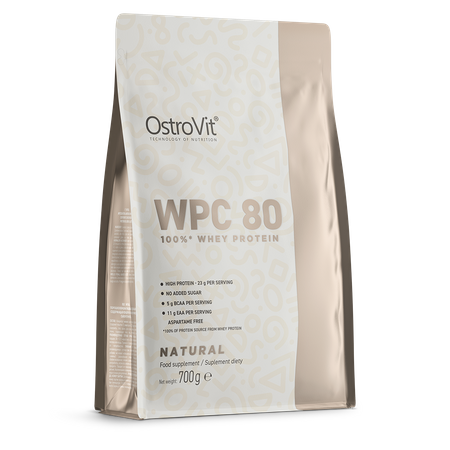
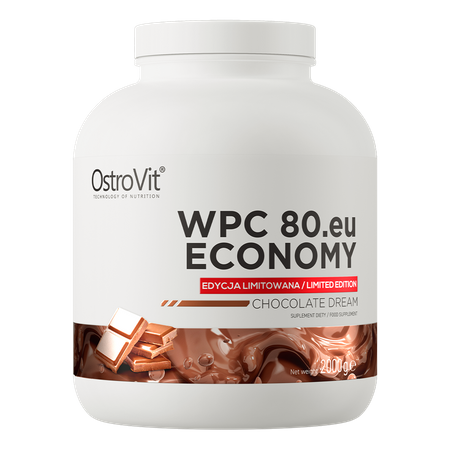
 Bestseller
Bestseller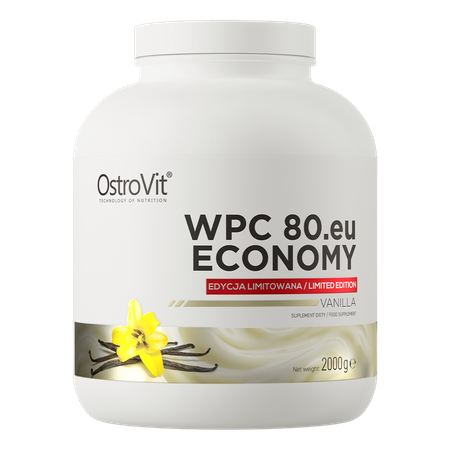
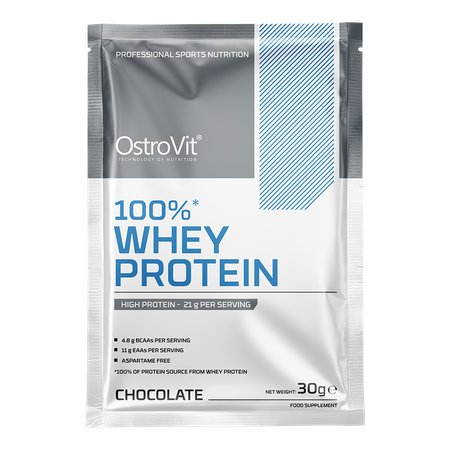
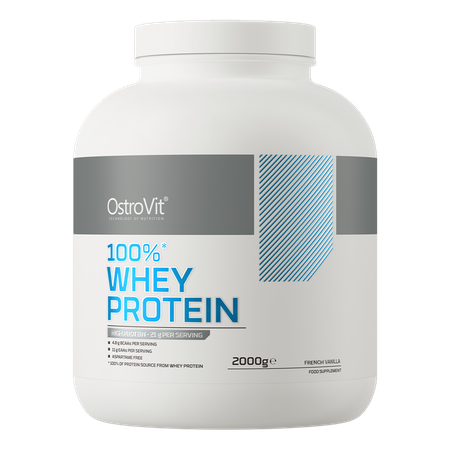
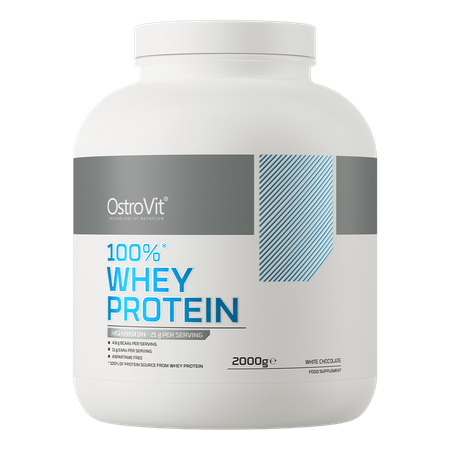
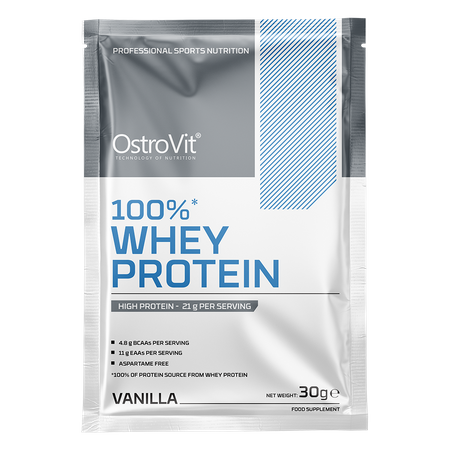
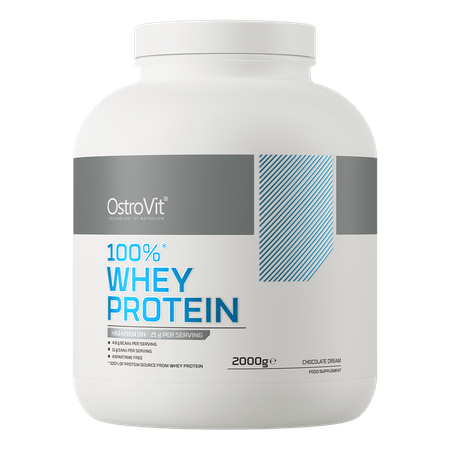

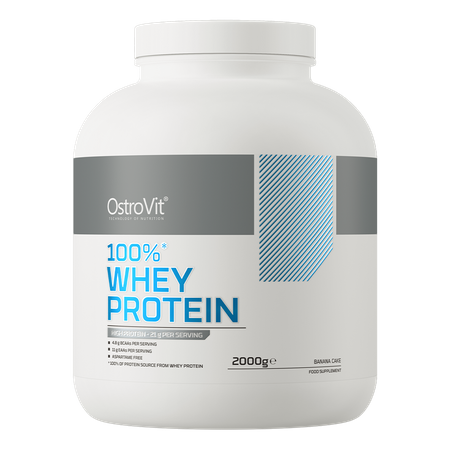
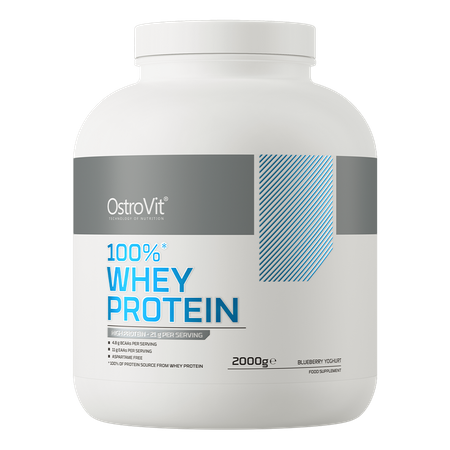
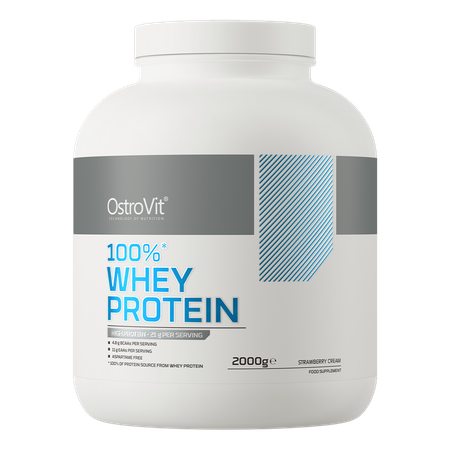
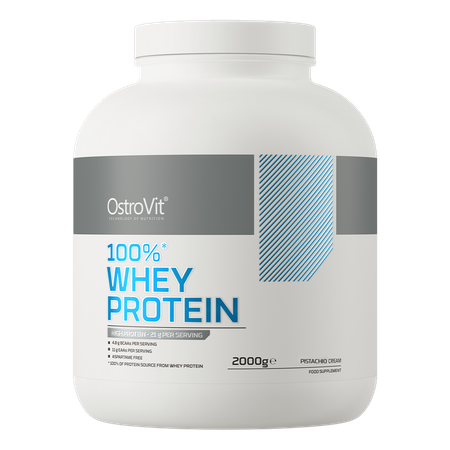
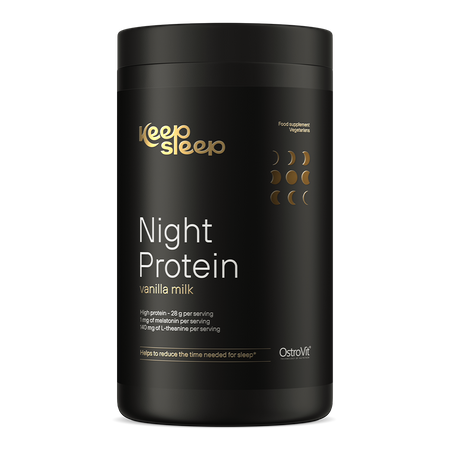
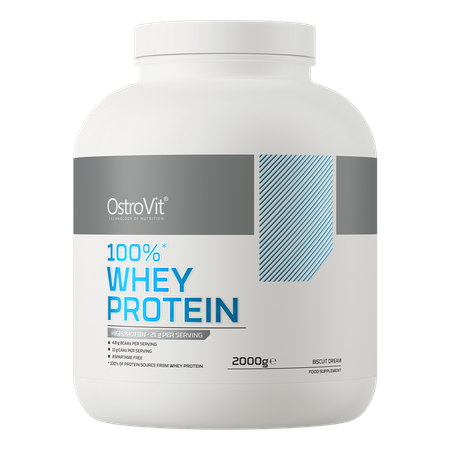
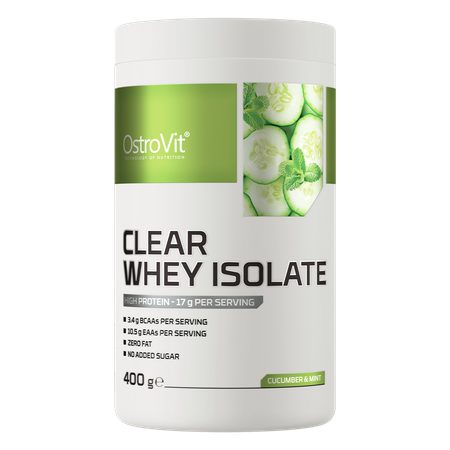
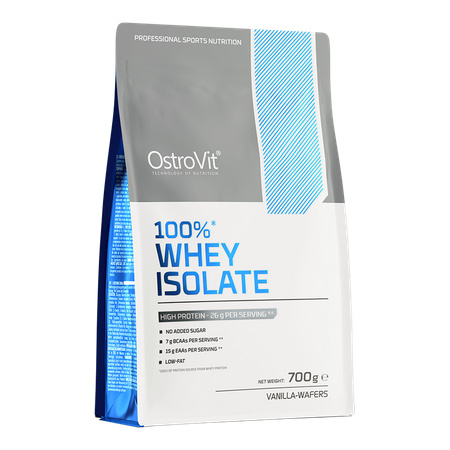
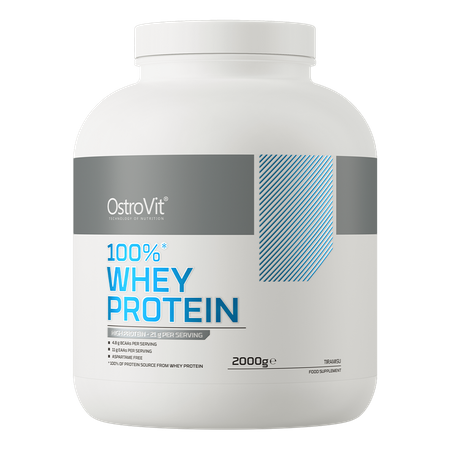
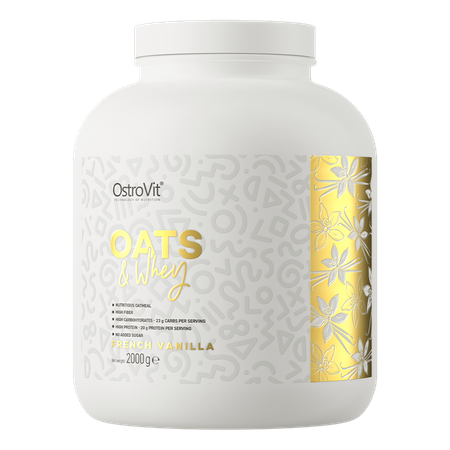
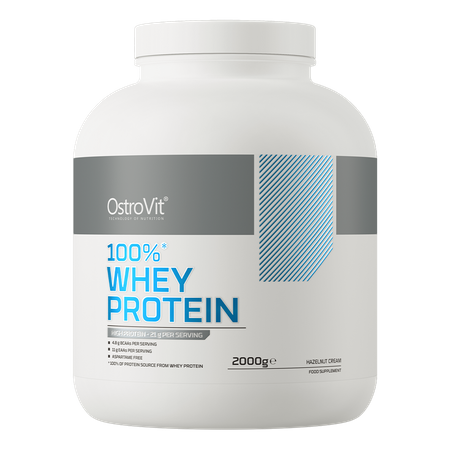
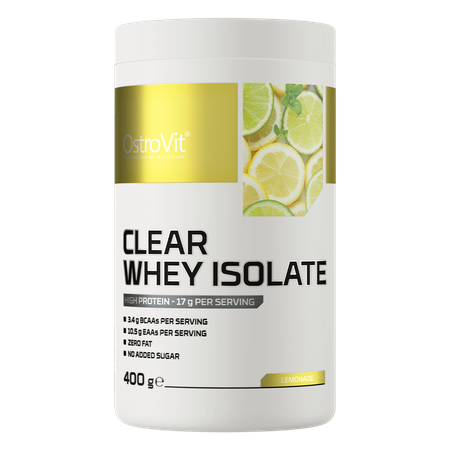
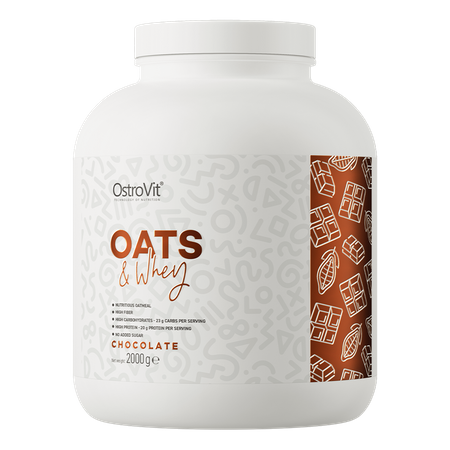
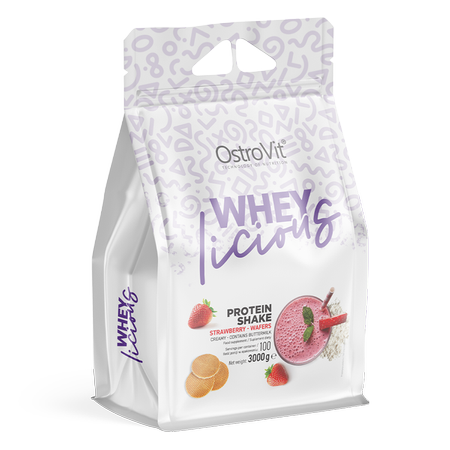
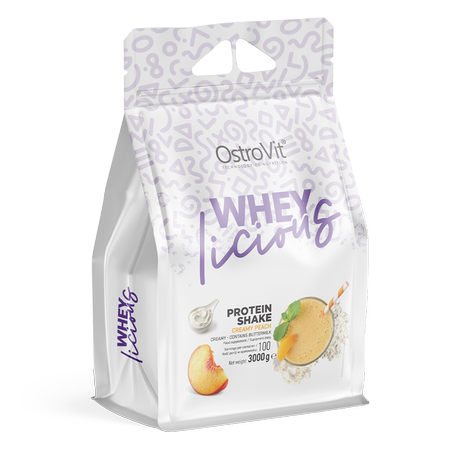
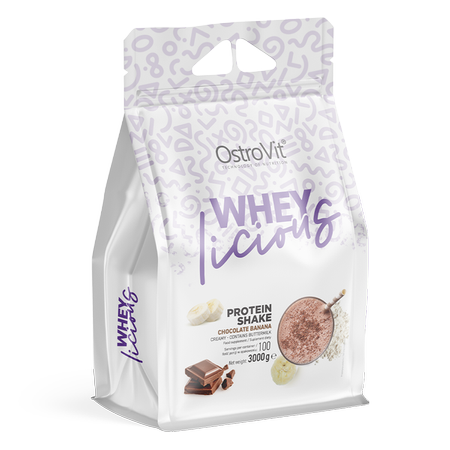
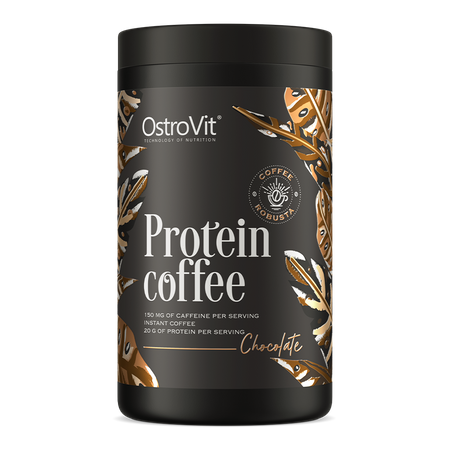
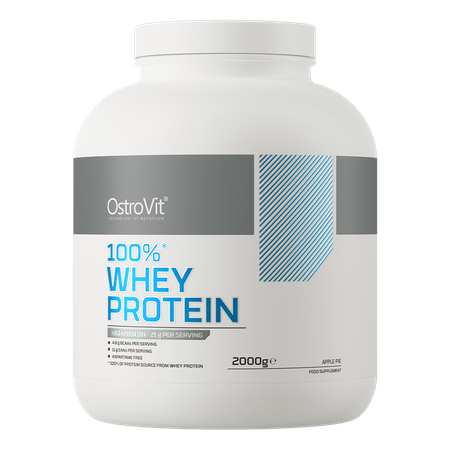

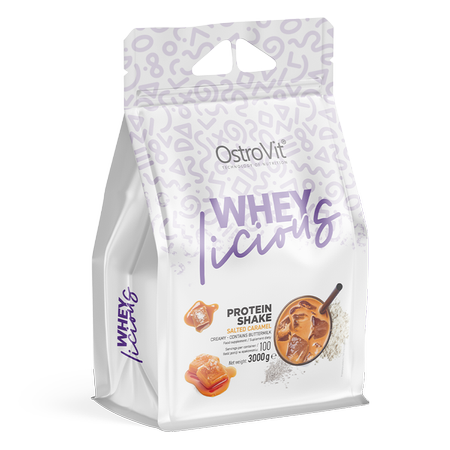
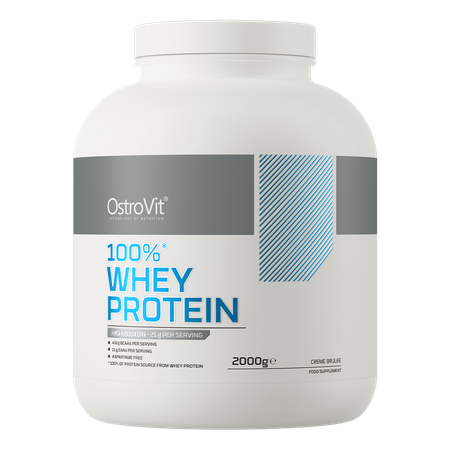
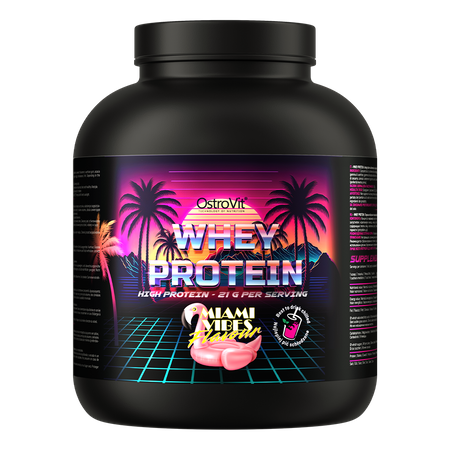
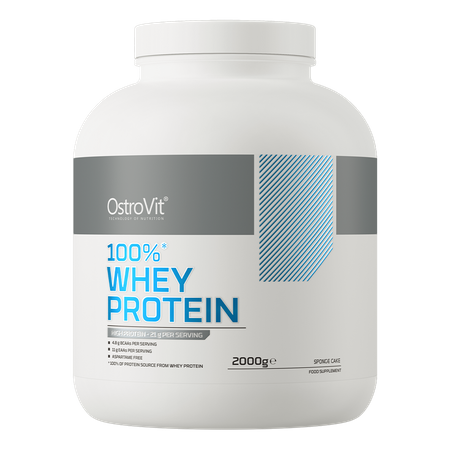
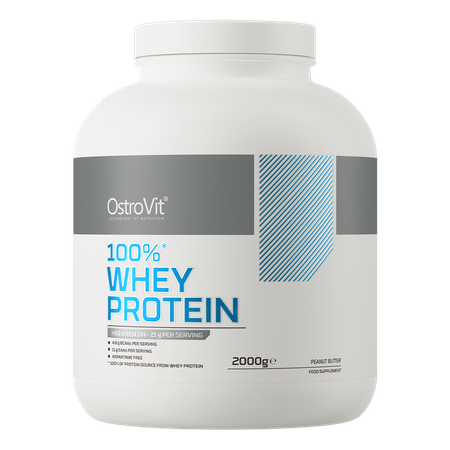
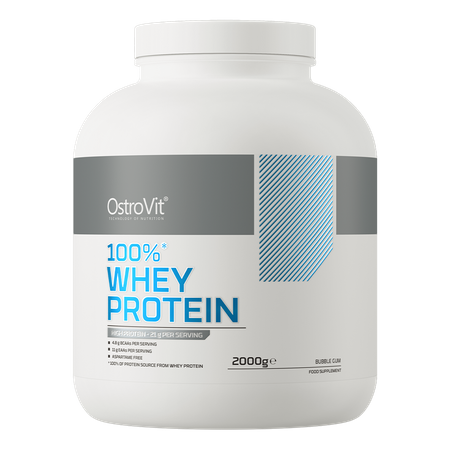
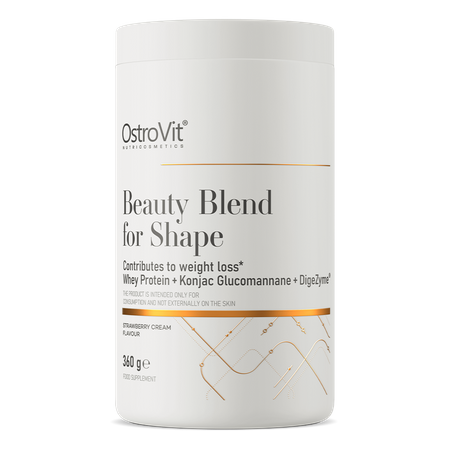
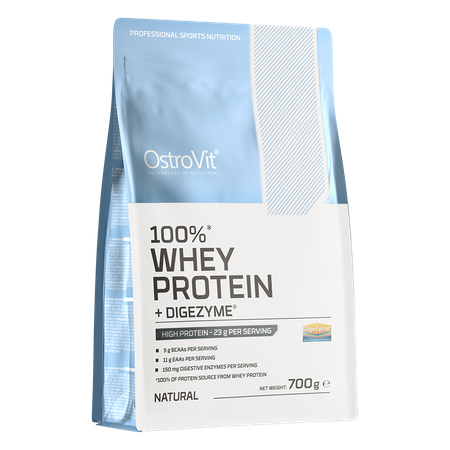
 New
New